Quiet Generator Introduction
Quiet generator: Imagine needing power while camping or during an outage, but without the deafening hum of a traditional generator. These sleek, noise-reduced powerhouses offer the same reliable electricity without the roaring background noise. Whether you’re lighting up your campsite, keeping your appliances running during a power cut, or simply looking for peace of mind on an RV trip, quiet generators bring you the best of both worlds: power and peace. Let’s explore why quiet generators have become the ultimate go-to for those who value silence along with efficiency!
Tired of yelling over your generator just to have a conversation or relax outdoors? Quiet generators are here to change the game! Designed to keep noise to a minimum, these innovative machines deliver all the power you need, minus the racket. Perfect for noise-sensitive spaces or relaxing escapes, quiet generators are engineered for modern convenience and tranquility. Join us as we dive into the world of quiet generators, exploring their benefits, key features, and how they’re redefining portable power.
Best Placement for Minimal Noise
When it comes to using a quiet generator, one key factor in maximizing its noise-reducing benefits is where you place it. Even though these generators are designed to keep noise to a minimum, strategic placement can make a noticeable difference. So, if you’re ready for peace and power, let’s dive into the best tips for positioning your quiet generator in the most noise-friendly way.
Keep Distance in Mind
Distance is your friend when it comes to minimizing noise. The further your quiet generator is from your main activity area, the less you’ll hear it. A general rule of thumb is to keep it at least 20 feet away from tents, picnic tables, or patios. Even a few extra feet can make a big difference in how much sound travels to you. By increasing the distance, you’ll get a quieter experience without sacrificing power. And if you’re at a campsite, try placing it as far as possible within the allowed area.
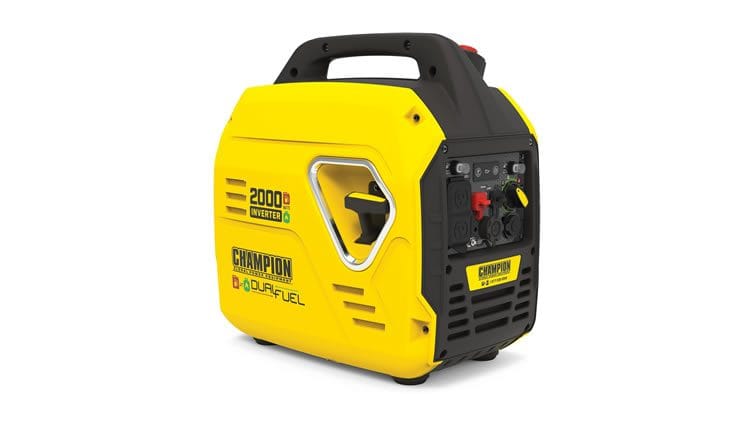
Use Natural Barriers
Got a tree, shrub, or rock nearby? These natural barriers are like your own soundproofing materials. Placing your quiet generator behind a thick tree or large rock can absorb and deflect sound waves, helping to reduce noise. It’s an easy, eco-friendly solution that requires zero setup time. Plus, it adds an extra layer of protection against wind and weather. If you’re at a campsite or backyard that’s surrounded by trees, use them to your advantage and tuck your generator in a spot where nature can do the work of dampening the sound for you.
Face the Exhaust Away from You
Another great trick is to face the generator’s exhaust side away from where you’ll be. The exhaust is one of the noisier parts of any generator, even a quiet one, so pointing it away from you and your group will reduce the noise you hear. Many quiet generators also have vents that direct sound, so by angling these components away, you’ll experience less noise. Think of it as redirecting the sound away from your gathering area. Whether it’s a family picnic or a cozy campsite, this simple change can make a big difference.
Elevate It Off the Ground
Setting your quiet generator on a solid surface like gravel, concrete, or a small platform can actually help reduce noise, too. Placing it directly on the ground, especially on soft surfaces like grass or dirt, may amplify vibrations, causing a subtle hum that travels through the ground. By elevating it, even just a few inches, you can reduce the noise from these vibrations. A small, sturdy platform or a couple of wooden boards can do the trick nicely. And as a bonus, elevating it keeps the generator safe from mud or puddles, which is always a plus.
Avoid Enclosed Spaces
While it might seem tempting to stash your quiet generator in a garage, shed, or other closed-off space to muffle the noise, this isn’t a safe option. Generators need proper ventilation to run efficiently, and an enclosed space can lead to overheating and even carbon monoxide buildup. Instead, look for semi-enclosed spots, like the side of a building or a corner with airflow, to help reduce sound while staying safe. Proper ventilation is key, so give it some room to breathe and operate safely while keeping noise to a minimum.
Test Different Spots
If you have the flexibility to move your generator around, experiment with a few locations to find the best placement. Sometimes, small adjustments can make a big difference in how much sound you experience. Try placing it in different spots and listen to the noise levels from your main area to find the optimal setup. Testing only takes a few minutes and can help you discover the quietest, most peaceful setup for your generator. Whether you’re camping or setting it up in your backyard, a quick test run can save you from noisy surprises later.
Angle it Toward a Sound Barrier
Sound barriers don’t have to be complicated; even a fence or wall can work wonders. By angling your quiet generator toward a barrier, you allow it to bounce the sound away from you and back in another direction. Some people even set up portable barriers, like plywood boards, to create a makeshift sound-blocking zone. Just position your generator in a way that allows the sound to be redirected away from your main space, and you’ll notice a reduction in noise. It’s a quick and effective way to add an extra layer of noise control.
Try Out a Generator Tent or Cover
If you’re looking for extra sound protection, consider using a generator tent or cover specifically designed for noise reduction. These covers are built to allow airflow while muffling noise, giving you even more peace and quiet. They’re also weather-resistant, so you get double benefits: sound reduction and weather protection. Just make sure to use a tent or cover designed for your specific quiet generator model to ensure proper ventilation. With this setup, you can enjoy an even quieter experience while knowing your generator is safe from the elements.
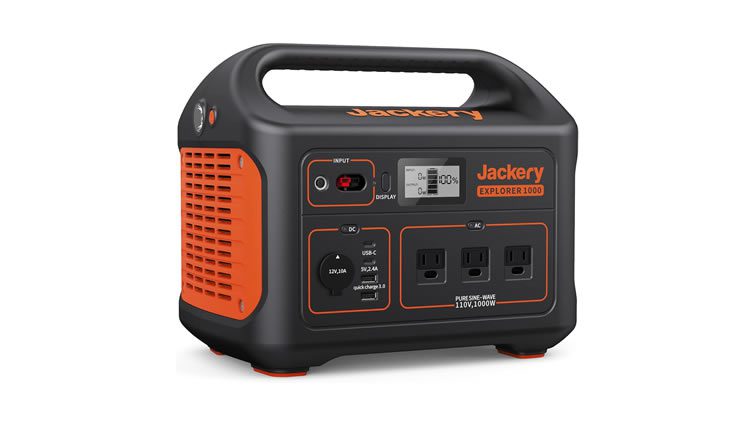
Consider Directional Positioning
Directional positioning means placing your generator with sound direction in mind. Some quiet generators have built-in technology to direct sound away from certain angles. By facing the quietest side toward your main area, you can enjoy minimal noise. This works especially well for outdoor gatherings or campgrounds where noise can travel. Try positioning your generator with directional sound in mind, and you’ll likely notice a big difference in your listening experience.
Silent Operation Tips
A quiet generator is an amazing choice if you’re looking for power without the noisy background hum. But did you know there are ways to make your generator even quieter? With just a few simple tweaks, you can enjoy an even more silent setup, whether you’re camping, working in the yard, or using it at home. Here, we’ll dive into the best tips to keep your quiet generator as silent as possible. Let’s get started!
Keep Up with Regular Maintenance
First and foremost, maintaining your quiet generator can work wonders for noise control. A well-maintained generator will run smoother and quieter than one that’s overdue for a tune-up. Regular oil changes, filter replacements, and spark plug checks help it stay in top shape, minimizing any unexpected noise. Think of it like keeping your car engine running smoothly—the quieter, the better. It’s a quick and easy way to reduce noise and increase your generator’s lifespan.
Regular maintenance might sound boring, but it’s honestly worth it. Just a few minutes every few months can make all the difference. And if you’re not sure where to start, your generator’s manual likely has a maintenance checklist. Following these steps will keep your generator running like a dream.
Use a Generator Mat or Pad
Did you know the surface your quiet generator sits on can affect its noise levels? Hard surfaces like concrete can amplify vibrations, making it sound louder. Placing your generator on a thick rubber mat or anti-vibration pad can absorb these vibrations and prevent them from carrying through the ground. Rubber mats are especially useful if you’re setting up on hard ground or cement.
For an extra level of soundproofing, some people even use foam pads under their generator. A generator mat is affordable, portable, and one of the easiest ways to reduce unwanted noise. So, whether you’re in the yard or on a campsite, a simple mat can bring you quieter power with minimal effort.
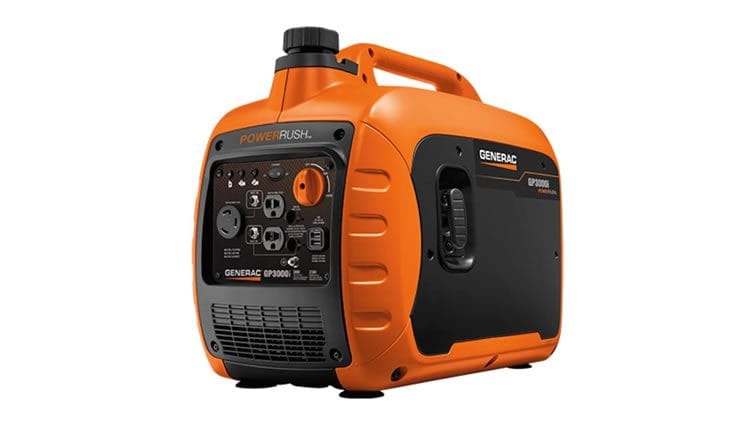
Adjust the Exhaust Direction
One effective tip is to point the generator’s exhaust away from your main area. Even though quiet generators are designed with noise reduction in mind, the exhaust still produces sound. By directing it away from where you’ll be hanging out, you can further reduce noise in your immediate space. It’s a quick adjustment that goes a long way toward minimizing sound levels.
Some people even set up a sound barrier behind the generator to bounce the noise away. A simple piece of plywood or thick cardboard can do the trick without too much fuss. Just position it carefully so it doesn’t obstruct airflow. This is an easy way to make your quiet generator even quieter.
Consider Using a Soundproof Box
For those seeking an even quieter experience, a soundproof box can be a game-changer. Building a simple soundproof box around your quiet generator helps contain noise while still allowing airflow. Many DIYers use materials like plywood, soundproof foam, and ventilation ducts to build these boxes.
You don’t need to be a construction expert to make one; a few basic supplies and tools are all it takes. Just be sure to leave enough ventilation for safe operation. A soundproof box is a great choice if you’re looking to seriously reduce noise, especially if you’re using your generator around others who value the quiet, too.
Keep It Clean and Free of Debris
Dust, dirt, and debris buildup can make a quiet generator work harder, causing it to run louder than usual. Regularly cleaning your generator is an easy way to prevent unnecessary noise. A quick wipe-down with a cloth and occasional deep cleaning around the vents can keep it in top shape.
If you’re using it outdoors often, check for leaves, twigs, or mud that could clog the machine. Keeping your generator clean is more than just good maintenance; it’s a smart way to keep it running smoothly and quietly. A little cleaning here and there goes a long way for noise reduction!
Avoid Overloading Your Generator
Overloading is one of the biggest culprits behind increased noise in generators. Quiet generators have a maximum load capacity, and pushing them past that limit causes them to work overtime, creating extra noise. To avoid this, check the power requirements of the appliances you’re using and make sure they don’t exceed the generator’s capacity.
Not only will this help keep things quieter, but it also prevents unnecessary wear and tear on your generator. Stick to powering only what you need, and you’ll enjoy quieter, more efficient operation. It’s a simple tip that can save you both noise and money in the long run.
Choose the Right Location for Setup
Location is key to keeping your quiet generator as silent as possible. Setting it up in a well-chosen spot can significantly reduce the sound you experience. Look for a place that’s naturally shielded, like behind a tree or next to a wall. Positioning it near a natural barrier can help absorb or deflect sound, giving you a quieter space to enjoy.
Avoid placing it in tight, enclosed spaces, though. Generators need ventilation, and putting them in confined spots can lead to overheating. Instead, opt for a semi-enclosed area that allows airflow but also provides some noise dampening. With the right placement, you can make a huge difference in noise levels.
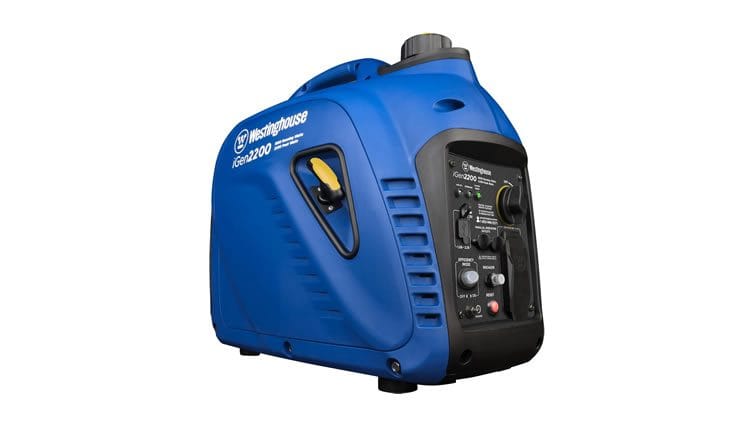
Try a Muffler or Silencer
Adding a muffler or silencer is another way to keep your quiet generator even quieter. Many mufflers are compatible with portable generators and can be attached to the exhaust pipe to reduce noise. They work similarly to car mufflers, helping to dampen the sound that escapes from the generator.
These attachments are generally affordable and easy to install, making them a popular choice for noise reduction. Just check with your generator’s manufacturer or user manual to see if a muffler is compatible with your model. A little add-on like this can make a surprisingly big impact on noise.
Monitor Engine Temperature
Did you know that a generator running at high temperatures often produces more noise? Keeping an eye on your generator’s temperature can help maintain quieter operation. If it’s working too hard or running for extended periods, give it a break to cool down. Overheating can cause internal parts to work harder, leading to extra noise and even wear.
Take breaks every few hours if you’re running the generator continuously, and check that it’s properly ventilated. Proper temperature control is a key way to ensure long-lasting, quiet performance, helping you get the most out of your generator while keeping things peaceful.
Soundproofing Your Generator
A quiet generator can bring you reliable power without disturbing the peace, but what if you want it even quieter? Soundproofing your generator is an easy way to minimize noise and enjoy true peace and quiet, whether you’re camping, working, or enjoying time outdoors. With a few simple soundproofing tricks, you’ll be amazed at just how hushed your generator can get. Let’s dive into the best tips for turning down the noise even further!
Try a Soundproof Generator Enclosure
If you’re looking for a noticeable difference in noise reduction, a soundproof enclosure is one of the best options. Enclosures work by creating a barrier between the generator and the outside world, trapping sound waves so they don’t travel as far. Many DIYers build their own enclosures using materials like plywood, soundproof foam, and ventilation ducts.
It might sound like a big project, but building a simple enclosure doesn’t require too many materials or much expertise. Just remember to leave some space for airflow—generators need ventilation to avoid overheating. A soundproof box can go a long way in reducing noise while still keeping your generator safe and cool.
Use Anti-Vibration Pads
Generators, even quiet ones, can vibrate quite a bit when they’re running. These vibrations can add to the overall noise, especially if your generator is on a hard surface. Anti-vibration pads are small, shock-absorbing pads that sit under each corner of your generator to reduce these vibrations. They’re usually made of rubber and do an excellent job of absorbing the movement that leads to that extra hum.
You can find anti-vibration pads at most hardware stores, and they’re easy to set up. Just slide one under each corner of your generator, and you’ll notice a quieter experience instantly. This is one of the simplest and most affordable ways to make your generator even quieter without any construction involved!
Redirect the Exhaust with a Muffler
The exhaust system is one of the noisier parts of a generator, so adding a muffler can make a huge difference. Mufflers work just like they do on cars, reducing the noise of exhaust gasses as they leave the machine. By dampening these sounds, you’ll get a quieter experience without affecting the generator’s power.
Many mufflers are compatible with a variety of generators, but it’s always best to check with your manufacturer first. Installing a muffler doesn’t usually require any special skills, so it’s a quick upgrade that can make a big difference. With a muffler in place, your quiet generator gets even closer to true silence.
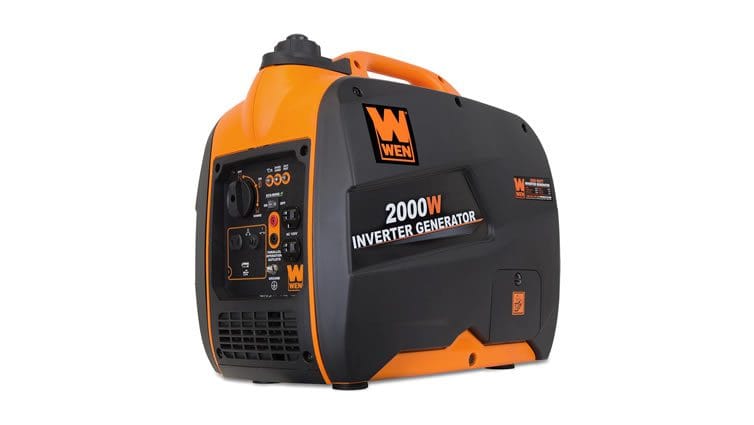
Set Up Portable Sound Barriers
If you’re looking for a flexible soundproofing option, try setting up portable barriers around your generator. Portable sound barriers can be anything from thick plywood sheets to specialized soundproofing materials. Positioning these around your generator helps block sound waves from traveling, creating a buffer that keeps noise from reaching you.
You don’t need anything too fancy for this trick—just a few pieces of thick, durable material that can stand up to the elements. Place them around the generator, leaving a bit of space for airflow, and you’ll enjoy a noticeable reduction in noise. Portable barriers are great for outdoor settings and can be easily moved around depending on where you set up.
Use Soundproofing Mats or Blankets
Soundproofing mats and blankets are a quick, affordable way to reduce generator noise, especially in outdoor settings. These mats are often made from heavy-duty, sound-absorbing materials that trap noise and reduce vibrations. You can drape them around the generator or use them to line an enclosure for extra noise reduction.
When using soundproofing blankets, make sure they’re secured properly and don’t cover ventilation openings. Mats and blankets are perfect for temporary setups or situations where you need a fast solution. Plus, they’re easy to pack up and take with you, making them ideal for camping trips and outdoor gatherings.
Position Your Generator for Optimal Sound Reduction
Sometimes, where you place your generator makes all the difference. If possible, set it up in a spot that’s naturally shielded, like behind a tree, a large rock, or a wall. These natural barriers can act as soundproofing tools, redirecting the noise away from your main area.
If you’re in a location without natural barriers, consider using a portable enclosure or placing the generator at an angle that directs sound away from you. Simple positioning tricks like this can create a quieter setup without needing any additional materials. And the best part? It’s free!
Consider Building a Baffle Box
A baffle box is another DIY solution for soundproofing your quiet generator. It’s a specially designed box that uses multiple layers of soundproofing material to reduce noise. Baffle boxes often have channels that allow air to flow while reducing noise, giving you both ventilation and soundproofing benefits.
Building a baffle box requires some basic construction skills and a few materials like plywood, insulation, and soundproof foam. You can customize it to fit your generator size, and it’s highly effective for reducing noise. Once set up, a baffle box provides a long-term solution to generator noise, making it an excellent choice for those who frequently rely on their generator.
Use Acoustic Panels for Extra Absorption
Acoustic panels are a common choice for home soundproofing, and they work wonders with generators too. These panels absorb sound waves, preventing them from bouncing off surfaces and amplifying. You can attach acoustic panels to an enclosure or set them up around your generator for a quieter experience.
While they might be more of an investment than other options, acoustic panels offer top-tier sound reduction. They’re durable, effective, and perfect if you’re setting up a semi-permanent generator area. If noise is a major concern, investing in quality acoustic panels can be well worth it.
Try DIY Soundproofing with Household Items
If you’re in a pinch, a few household items can be used to reduce generator noise. Thick blankets, cardboard boxes, or foam padding can act as temporary sound barriers. While they may not be as effective as specialized soundproofing materials, they still make a difference.
Just be careful with ventilation—never cover up areas that the generator needs to breathe. DIY options are great if you’re in a bind or only need soundproofing for a short time. You might be surprised at how much noise you can block out with a few simple items from around the house!
Comparing Popular Quiet Models
Choosing the perfect quiet generator can feel overwhelming with so many options on the market. But fear not! Here, we’ll explore some of the top models, breaking down what makes each unique. From super-silent operation to impressive fuel efficiency, let’s find out which quiet generator could be your new favorite.
Honda EU2200i: The Reliable Powerhouse
When it comes to quiet generators, the Honda EU2200i is a crowd favorite. Known for its reliable performance and low noise levels, this model is ideal for those who need dependable power without the loud hum. Operating at about 48 to 57 decibels, it’s quiet enough for campsites and home use alike.
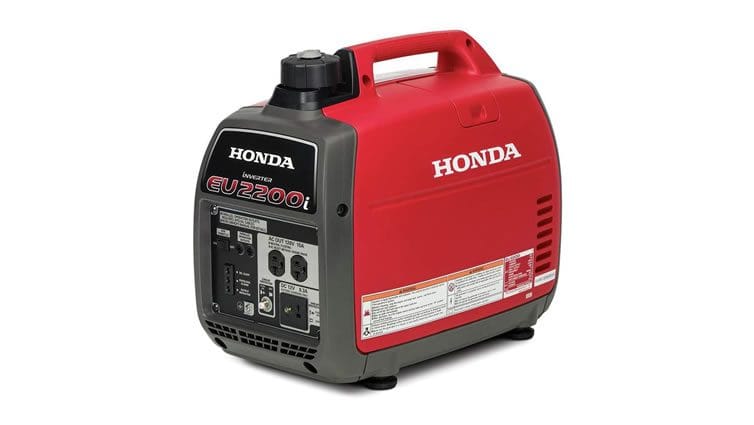
One standout feature is the Honda EU2200i’s fuel efficiency. This generator can run for up to 8 hours on a single tank, depending on the load. Plus, it’s lightweight and portable, making it easy to carry around. You get all the benefits of a powerful generator with minimal noise—a win-win!
Yamaha EF2000iSv2: Compact and Efficient
If you’re looking for a quiet generator that’s compact yet powerful, the Yamaha EF2000iSv2 is worth a look. Operating between 51 and 61 decibels, it’s similar to a normal conversation in terms of noise level. This model is great for smaller power needs and is known for its quiet yet efficient performance.
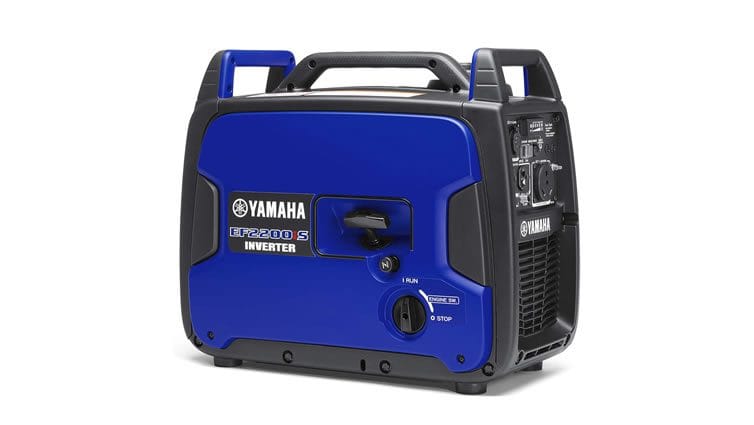
One feature that sets the Yamaha EF2000iSv2 apart is its Smart Throttle technology. This feature automatically adjusts the engine speed based on the power demand, enhancing fuel efficiency and keeping noise levels low. It’s a fantastic option for those who want a quiet, fuel-efficient generator for outdoor activities or emergency home use.
WEN 56200i: Budget-Friendly and Quiet
If affordability is key, the WEN 56200i is a fantastic budget-friendly option. Don’t let the price fool you—this quiet generator offers impressive performance and operates at a noise level of around 51 decibels. Whether you need it for camping, tailgating, or backup power, the WEN 56200i provides excellent value.

Despite its lower price, the WEN 56200i still includes key features like eco-mode, which allows for greater fuel efficiency when power demand is low. It’s also lightweight and easy to transport, making it a popular choice for those who want a reliable, quiet generator without breaking the bank.
Westinghouse iGen2200: Power and Portability
The Westinghouse iGen2200 offers a nice blend of power, portability, and quiet operation. This generator runs at around 52 decibels, making it suitable for home and recreational use without disturbing your surroundings. With 2200 peak watts and 1800 running watts, it’s powerful enough to handle most small appliances and electronics.

One of the biggest perks of the iGen2200 is its runtime. This model can operate for up to 12 hours on a single tank, depending on load. Its fuel efficiency and extended runtime make it ideal for longer trips or emergency situations. Plus, with its compact design, it’s easy to store and transport wherever you need power.
Generac GP3000i: Extra Power with Quiet Operation
If you’re after a little more power without sacrificing quiet operation, the Generac GP3000i might be the perfect match. This model operates around 50 to 58 decibels, so it remains quiet while offering extra wattage. With 3000 starting watts, it’s a powerful option for those who need to run multiple devices simultaneously.

The GP3000i is also equipped with Generac’s PowerRush technology, which delivers extra power for starting larger appliances like refrigerators or air conditioners. It’s a great option if you’re looking for a bit more power capacity without the typical noise that comes with bigger generators.
Champion 2000-Watt Dual Fuel: Quiet and Versatile
The Champion 2000-Watt Dual Fuel generator is a great choice if you want flexibility with your fuel options. This quiet generator operates around 53 decibels, keeping things peaceful whether you’re running on gasoline or propane. This versatility makes it ideal for those who may need to switch fuel types on the go.
One of the Champion 2000-Watt’s standout features is its dual-fuel capability, allowing you to choose between gas and propane. It’s perfect for camping, RVs, or even emergencies, where different fuel options can be a big advantage. With a noise level similar to a normal conversation, you get power without the excessive noise.

Jackery Explorer 1000: Portable and Silent Power Station
While not a traditional generator, the Jackery Explorer 1000 power station is an excellent alternative for those prioritizing absolute silence. Since it’s battery-powered, the Jackery Explorer is completely silent during operation, making it perfect for indoor use or noise-sensitive areas.
One of the biggest benefits of the Jackery Explorer 1000 is its portability and zero emissions. You can easily charge it using solar panels, making it a great eco-friendly option. It’s especially useful for low-power needs like charging phones, laptops, or small appliances. If silence is your top priority, this power station is worth considering.

Comparing Power and Runtime Across Models
When choosing a quiet generator, power output and runtime are essential factors to consider. For instance, the Westinghouse iGen2200 offers impressive runtime, while the Generac GP3000i delivers higher power output for heavier appliances. Think about what you’ll be using the generator for and choose a model that matches your power and runtime needs.
For campers and outdoor enthusiasts, models like the Honda EU2200i or Yamaha EF2000iSv2 provide a great balance of power and quiet operation. If you need something that can handle more demanding appliances, the Generac GP3000i or Westinghouse iGen2200 might be a better fit.
Noise Levels Compared: Which is the Quietest?
Noise level is often a top concern for anyone investing in a quiet generator. In this lineup, the Honda EU2200i and WEN 56200i stand out as particularly quiet, both operating around the 50-decibel mark. These models are great for settings where low noise is essential, like camping or quiet neighborhoods.
For those who prioritize ultra-quiet operation, consider the Jackery Explorer 1000 power station, which operates silently due to its battery power. Although it may not have the same power output as traditional generators, it’s perfect for small electronics and delivers noise-free operation.
Choosing the Best Quiet Generator for Your Needs
At the end of the day, the best quiet generator for you depends on your specific needs. If you’re looking for something affordable and effective, the WEN 56200i is a solid choice. Need dual-fuel options? The Champion 2000-Watt Dual Fuel model has you covered. For silent operation indoors, the Jackery Explorer 1000 offers noise-free power.
Think about the type of power you need, how often you’ll be using the generator, and whether features like dual-fuel capability or extended runtime are important to you. With so many great quiet generators available, you’re sure to find the perfect fit for your needs.

